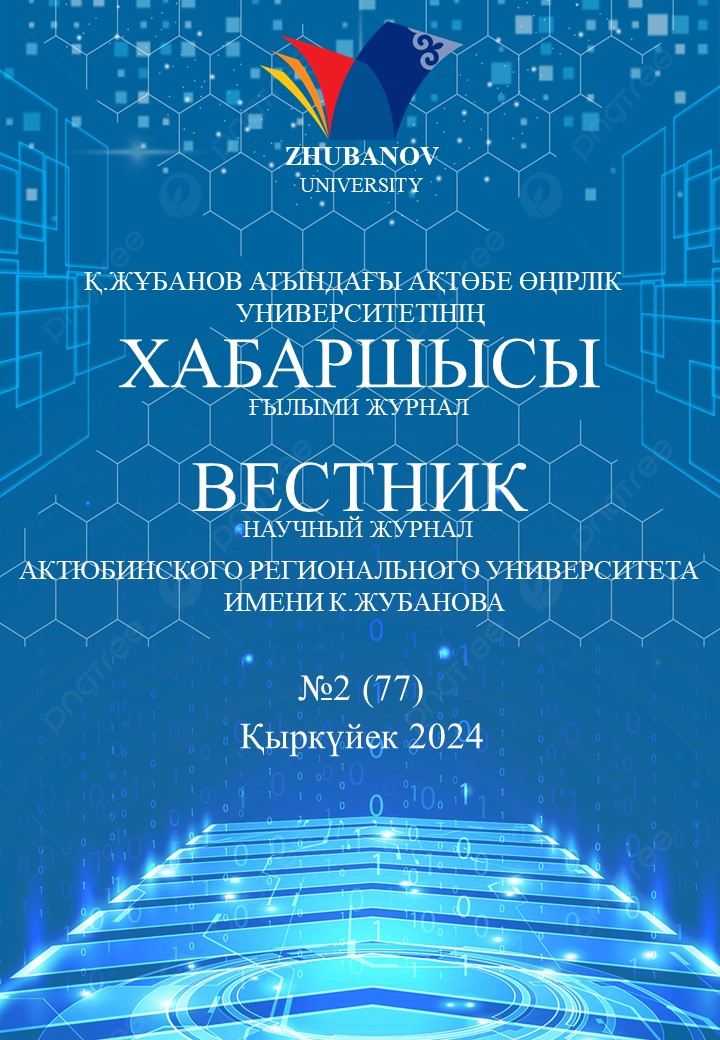This article is dedicated to the issue of the transition of the Kazakh alphabet from Cyrillic to Latin script. The article provides a review of the literature on the influence of Soviet ideology on education in general and on the influence of this ideology on the two changes in the Kazakh alphabet in the first half of the twentieth century. From our point of view, the modern approach is more flexible, scientific, and consistent with the process of Romanization in neighboring Turkic-speaking countries. We also took into account the position of Russian researchers interested in the problems of education policy in this area. It was important for us to analyze possible didactic and methodological problems associated with the introduction of Latin graphics into the educational sphere, since the education and development of children is a priority task of our society. Further, the collected data will be compared with the policy of translating the modern Kazakh alphabet into Latin and with programs such as “Spiritual Renewal” and “100 new books”. The research methods of the survey are (historical) observation and content analysis. The data were collected through a short-term review. The study results conclude that changing the alphabet twice in eleven years during the Soviet period is less effective and scientific than the current policy of translating the Kazakh alphabet into Latin.
KARINOV A.К.
master's degree, dean of the Faculty of Pedagogy and Management in Education, Aktobe Regional University named after K. Zhubanov, Kazakhstan.
E-mail: abylayqarin@gmail.com, https://orcid.org/0000-0001-8032-7342
UTEPOV M.B.
Candidate of Pedagogical Sciences, Associate Professor of the Department of General Pedagogy and Education Management, Aktobe Regional University named after K. Zhubanov, Kazakhstan.
E-mail: m.b.utepov@mail.ru, https://orcid.org/0009-0006-2327-7792
ALLAGULOV A.M.
Doctor of Pedagogical Sciences, Professor, Head of the Department of Pedagogy and Management, Orenburg State Pedagogical University, Orenburg, Russian Federation
E-mail: art_hist@bk.ru, https://orcid.org/0000-0001-5490-6818
- Қазақстан Республикасы Статистика агенттігі [Электрондық ресурс]. – Режим доступа: https://www.stat.gov.kz/official/industry/61/statistic/6.
- Жұбатқанова, К. КСРО-ның негізгі мифтерінің бірі [Электрондық ресурс]. – Режим доступа: https://bilimsite.kz/zhanalik/13287-ksro-nyn-negizgi-mifterinin-biri.html.
- Constitution of the Union of Soviet Socialist Republics. Retrieved from. – Режим доступа: http://www.departments.bucknell.edu/russian/const/1977toc.html.
- Omirgazy, D. Kazakh alphabet: past, present and future. – 2019. – Режим доступа: https://www.edgekz.com/kazakh-alphabet-past-present-and-future/.
- Фазылжан, А. Жаңа әліпби заман талабына толығымен жауап береді. – 2021. [Электрондық ресурс]. – Режим доступа: https://www.minber.kz/2021/02/anar-fazylzhan-zhanga-alipbi-zaman-talabyna-tolygymen-zhauap-beredi/.
- Cohen, L., Manion, L. and Morrison, K. Research Methods in Education. 8th ed. New York: Routledge. – 2018. DOI: https://doi.org/10.4324/9781315456539
- Krippendorff, K. Content Analysis. An Introduction to Its Methodology (2nd ed.) Thousand Oaks, CA Sage Publications. – 2004.
- Bellino, M., Paulson, J., Anderson, E. Working through difficult pasts: toward thick democracy and transitional justice in education. / Comparative Education. – 2017. – № 53(3). – P. 313-332. DOI: 10.1080/03050068.2017.1337956. DOI: https://doi.org/10.1080/03050068.2017.1337956
- Ramírez-Barat, C., Duthie, R., Introduction in Transitional Justice and Education. Learning Peace. (Social Science Research Council, New York). – 2017.
- Bevernage, B. Transitional Justice and Historiography: Challenges, Dilemmas and Possibilities. Macquarie Law Journal. – 2014. – № 13(16).
- Smith, A. Children, Education and Reconciliation. / Innocenti Working Paper, UNICEF Innocenti Research Centre. – 2010. – № 13(6).
- Novelli, M., Lopes Cardozo, M., Smith, A. A Theoretical Framework for Analysing the Contribution of Education to Sustainable Peacebuilding: 4Rs in Conflict-Affected Contexts. – 2015. – P. 128-135.
- Methodical manual on information and explanatory work of the program article. Future Orientation: Spiritual Renewal. – 2017.
- Sriprakash, A., Nally, D., Myers, K., and Ramos-Pinto, P. Learning with the Past: Racism, Education and Reparative Futures. Paper commissioned for the UNESCO Futures of Education report. – 2020. – Режим доступа: https://unesdoc.unesco.org/ark:/48223/pf0000374045.
- Указ Президента Республики Казахстан от 26 октября 2017 года № 569. О переводе алфавита казахского языка с кириллицы на латинскую графику. – 2017. [Электронный ресурс]. – Режим доступа: https://adilet.zan.kz/rus/docs/U1700000569.
- Как переход на латиницу повлияет на грамотность казахстанцев? Мнение экспертов. 20 февраля 2018. – Режим доступа: https://tengrinews.kz/kazakhstan_news/perehod-latinitsu-povliyaet-gramotnost-kazahstantsev-mneniya-338106/
- Латинский алфавит. Проблемы перехода и перспективы. К.Байниева, А.Умурзакова, Атырауский государственный университет имени Х.Досмухамедова, К.Нсанбаева, Национальная гимназия №13 г. Атырау. Акмолинская правда 26.10.2018 – Режим доступа: https://apgazeta.kz/2018/10/26/latinskij-alfavit-problemy-perexoda-i-perspektivy/
- Базарбаева Б. Рухани жаңғыру: Қазақ тілінің латын әліпбиіне көшуі. – 2017. [Электрондық ресурс]. – Режим доступа: https://tilalemi.kz/article/632.
- Эксперты: «Переход на латиницу повлечет лишь ряд проблем и потребует больших затрат» Опубликовано: 02.11.2017, «Kursiv.kz». Режим доступа: https://wfin.kz/publikatsii/stati/14720-eksperty-perekhod-na-latinitsu-povlechet-lish-ryad-problem-i-potrebuet-bolshikh-zatrat.html


